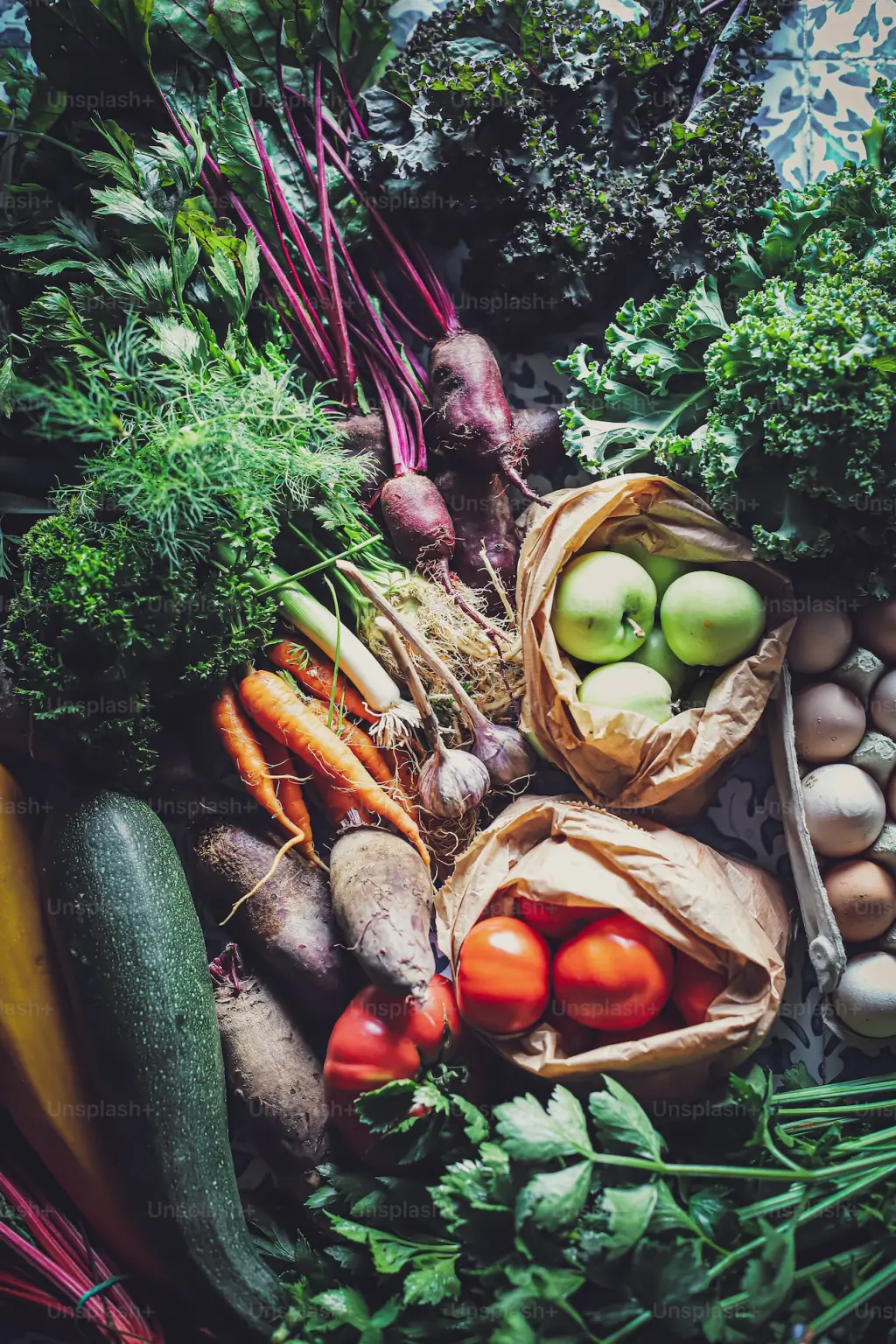Emily Blake (BA Hons MA DipCNM MBANT CNHC) is a Registered Nutritional Therapy Practitioner. She runs her own private online practice (www.emilyblakenutrition.com), works for the human microbiome company, Invivo Healthcare, as a member of their Clinical Education team, and lectures in Nutritional Therapy around the country. She is also an avid foodie and runner. Emily is passionate about communicating the importance of nutritional and lifestyle medicine, especially for mental health, and helping individuals to reach their health goals through in-depth, personalised 1:1 support.
When times are tough, when anxious or depressed, when living with pain, it is difficult to have the headspace to think about our nutrition and lifestyle, let alone how it may be affecting our emotions. Yet, it is exactly when we feel this way that we need to nourish ourselves. Mental health is not distinct from physical health. The two are intertwined. Our nutrition, lifestyle and environment underpin the health of each body system and, in turn, how we think and feel.
When faced with my mother’s cancer diagnosis, caring for her, and bereavement, I experienced just how difficult it is to think about nourishing oneself when life is tough. Especially when experiencing symptoms driven by stress and grief, including irritable bowel syndrome (IBS), anxiety, and fatigue. So started my journey into nutritional and lifestyle medicine and the discovery of its importance for improved emotional wellbeing and supporting the lives of millions of people struggling with their mental health.(1)

A Whole Body Perspective
While many of us have heard about the importance of serotonin for mood, several neurotransmitters are involved, including dopamine and gamma-aminobutyric acid (GABA). Brain-derived neurotrophic factor (BDNF) also plays an important role. Our nutrient status underlies our ability to make them, especially the amino acids tryptophan and tyrosine, folate, vitamin B6, B12, C, D, zinc, magnesium, iron, and Omega-3.
A nutrient dense diet is a vital starting point. Just as important is robust digestion and absorption to ensure we can extract and absorb nutrients from our food. If you experience chronic digestive issues, this could be a key area for you to work on.
Our gut also harbours a large community of microbes, the gut microbiome. They communicate with our brain and influence neurotransmitter production via the ‘microbiome-gut-brain axis’.(2) The gut microbiome is often compromised due to modern diet and lifestyle, including processed food, inadequate fibre, and medications, and for individuals with chronic conditions, such as inflammatory bowel disease (IBD) and autoimmunity.(3) Many of us may not be fully benefitting from the ability of our gut microbes to support our mood!
Inflammation impacts brain health and mood as well, the so-called ‘inflamed mind’ theory of depression coined by Professor Edward Bullmore, and the gut can be a major source. If our gut microbiome and gut barrier are compromised, inflammatory pathways become chronically activated and neurotransmitter production significantly disrupted.(4)
This is where balanced blood sugar levels are important too. You know that energy slump after Christmas dinner or sugary snack? That spike in blood glucose can make us feel a bit high, even anxious. The following drop in blood glucose can make us feel low and craving more sugar again. This ‘blood sugar rollercoaster’ can drive inflammation and vast changes in mood!(5)
Chronic high cortisol, our principal stress hormone, can disrupt our blood sugar and negatively affect mental health, as can alternative types of hormone imbalances, including abnormal thyroid and sex hormone regulation.(6) Chronic conditions invariably have chronic inflammation and stress at their core, so working towards an anti-inflammatory and calming diet is essential.
The health of our body impacts the health of our mind, and vica versa! We need to nurture both, for each-other’s benefit.
Where to start
When feeling low or anxious, it can be an uphill battle to tweak our diet and lifestyle, but this traps us in a vicious cycle. Our current choices might be making us feel worse and then we’re even less likely to think about making positive changes.
The trick is to focus on those few changes which are most relevant for you. This will feel less overwhelming, and these changes will have a greater chance of benefitting whichever body systems are most under stress. When you start to feel slightly better, this kickstarts an upward spiral where you have the motivation to make more changes.
Slowly working through the below checklist can be a practical and formative for emotional wellbeing during difficult times. It is inspired by the SMILES clinical trial which found that 12 weeks of an affordable Mediterranean-style diet, packed with fruit and vegetables, pulses, legumes, wholegrains, nuts, fish, poultry, and olive oil significantly reduced the symptoms of moderate to severe depression.(7)

Action Plan
- Enjoy a ‘wholefood’ way of eating. The more processed a food (e.g. white bread), the lower the micronutrient, protein, and fibre content and higher the additives and sweeteners. Individuals with a high intake of ultra-processed food have a higher risk of psychological distress!(8) Think about which processed food you consume the most of and explore wholefood alternatives. Or start with making just one meal at a time from scratch.
- Protein at each meal and snack. This one change provides the amino acids for neurotransmitter production and supports balanced blood sugar. Protein sources include eggs, pulses, nuts, seeds, meat, fish, and dairy.
- Increase the diversity of your weekly plant intake, including herbs, spices, fruit, vegetables, and wholegrains. Eating more than 30 different types per week supports a healthier gut microbiome. Try having a few colours at each meal or experimenting with new fruit and veg.
- Pack your diet with foods rich in the nutrients required for neurotransmitter production, including:
Oily fish
Pumpkin seeds
Eggs
Offal
Flaxseeds
Walnuts
85% dark chocolate
Extra virgin olive oil
Dark green leafy veg e.g. kale, spinach
Blueberries
Turmeric
Fermented foods e.g. sauerkraut, kefir
- Increase awareness of your caffeine, sugar and alcohol intake, all of which are mood disruptors. Focus on the one you consume most and find a nourishing alternative. You can still consume caffeine and enjoy it, say 1x cup a day, before 12pm, on a full stomach.
- Get outside into daylight, even for just 10 minutes. Daylight trains our body clock and regulates our brain’s ability to make serotonin! Try to spend this time in nature for extra benefits.
Focus on the recommendations which you most like the look of and start there. For personalised support, often guided by different types of testing to better understand your body, I recommend reaching out to a Registered Nutritional Therapy Practitioner.
1. Jackson SE, Brown J, Shahab L, McNeill A, Munafò MR, Brose L. Trends in Psychological Distress Among Adults in England, 2020-2022. JAMA Netw Open [Internet]. 2023 Jul 3 [cited 2023 Oct 20];6(7):e2321959–e2321959. Available from: https://jamanetwork.com/journals/jamanetworkopen/fullarticle/2806861
2. Cryan JF, O’riordan KJ, Cowan CSM, Sandhu K V., Bastiaanssen TFS, Boehme M, et al. The microbiota-gut-brain axis. Physiol Rev. 2019;99(4):1877–2013.
3. Vijay A, Valdes AM. Role of the gut microbiome in chronic diseases: a narrative review. Eur J Clin Nutr 2021 764 [Internet]. 2021 Sep 28 [cited 2023 Feb 8];76(4):489–501. Available from: https://www.nature.com/articles/s41430-021-00991-6
4. Dicks LMT, Hurn D, Hermanus D. Gut bacteria and neuropsychiatric disorders. Microorganisms. 2021;9(12).
5. Knüppel A, Shipley MJ, Llewellyn CH, Brunner EJ. Sugar intake from sweet food and beverages, common mental disorder and depression: Prospective findings from the Whitehall II study. Sci Rep. 2017;7(1):1–10.
6. Dziurkowska E, Wesolowski M. Cortisol as a biomarker of mental disorder severity. J Clin Med. 2021;10(21).
7. Jacka FN, O’Neil A, Opie R, Itsiopoulos C, Cotton S, Mohebbi M, et al. A randomised controlled trial of dietary improvement for adults with major depression (the “SMILES” trial). BMC Med. 2017;15(1):1–13.
8. Lane MM, Lotfaliany M, Hodge AM, O’Neil A, Travica N, Jacka FN, et al. High ultra-processed food consumption is associated with elevated psychological distress as an indicator of depression in adults from the Melbourne Collaborative Cohort Study. J Affect Disord [Internet]. 2023;335(May):57–66. Available from: https://doi.org/10.1016/j.jad.2023.04.124
Smile is a mental health app for people managing chronic physical health conditions. Download now from Google Play or Apple App store